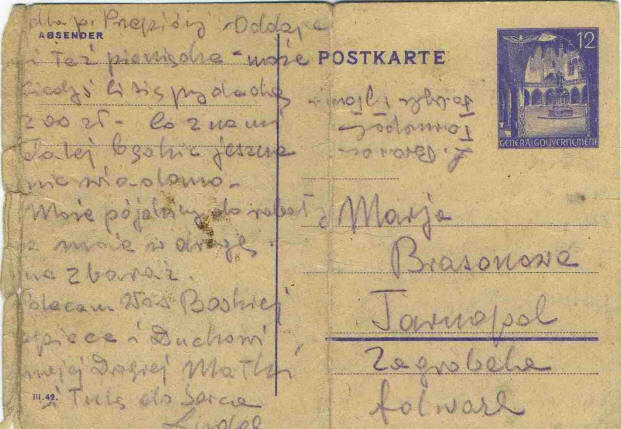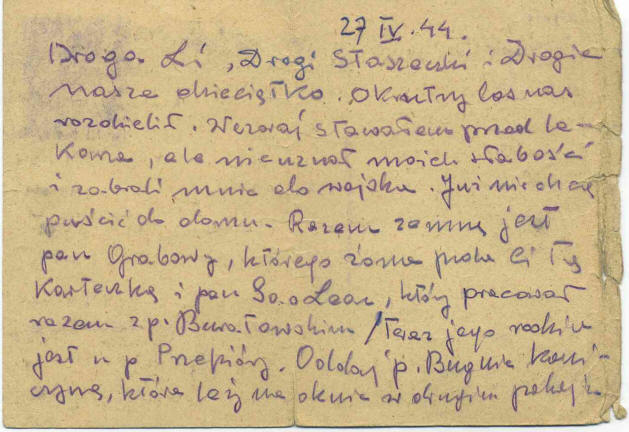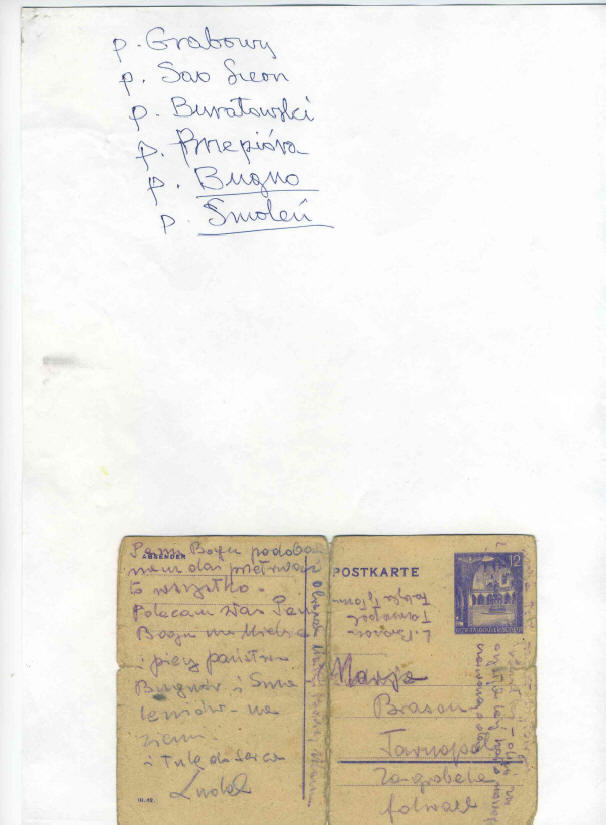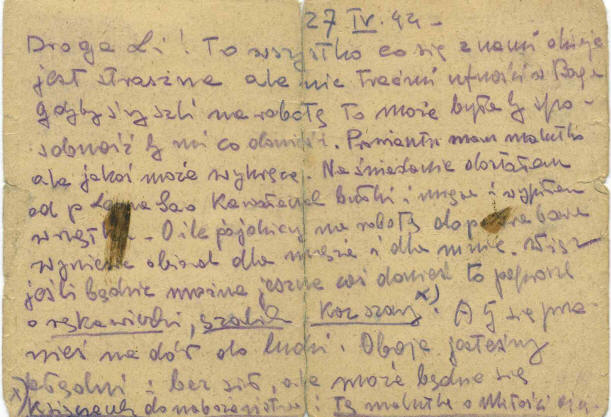Do
you have any hints or
information about my grandfather, missing in action (MIA) on the
Eastern Front April 1944?
Ludwik Adolf Maria Summer-Brason joined the Polish
Home Army after the Soviet forces had besieged the
German-controlled
Polish-Ukrainian town of Tarnopol. Ludwik was at that time steward
of Folwark Zagrobela, an estate under management of the
Polish government in the western outskirts of Tarnopol. He was held in 'estate-arrest' through the
war in order to manage the production of agricultural products
to Hitler's forces. The last my grandmother Maria Franz heard from him
was two postcards -
stamped 'Generalgouvernement 27.4.1944' - from an interimistic
Soviet- and Polish
military training camp in
Tarnopol, were he reminded her to take
care of their children and the experimental seeds. The estate in
Zagrobela, with 20 people employed, was a kind of agriculture
experimental station.
Ludwig was born in
Stary Sacs July 2nd 1887 as eldest son of Dr. Alois Ludwig Johannes
Ritter von Summer-Brason, an Austrian-Hungarian political official, who
became president of the supreme court in Krakow. Ludwig's mother Wanda Zathej was
of Hungarian origin. As young officers Ludwik and his
brother Stefan december 17, 1918 left the disintegrated
Austrian-Hungarian army in favor of the new Polish army and marshal
Jozef Pilsudskis military expedition against
the intruding Russian communists. Ludwiks first destination was Piotrkow:
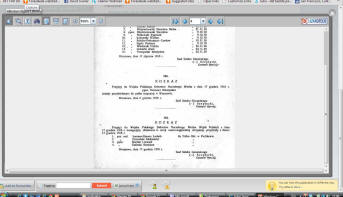
Ludwik hold academic
degrees in both engineering and agronomy. When
the Germans and Russians invaded
Poland in 1939 My family was invited to join the German cause as Reichsdeutsche
when the Germans and Russians invaded Poland in 1939.
My family refused! As a consequence of resistance, Stefan was jailed in Konzentrationslager
Dachau and Ludwik was under the German occupation 1941-44 held in
'estate-arrest' guarded by 5 German soldiers, who had Schiessbefehl, if the manager made any attempt
to escape.
My grandfather is still missing in
action. For my father, who died
in 2000, it was painful to remember
the liberation of Tarnopol.
Hitler had declared Ternopol as a Fester Platz, to be hold to the last man. My
father remembered frightened German soldiers fighting to the last man. My
grandmother hided in a the basement of the stately home during the campaign,
were she gave birth to my uncle Ryszard. The fields was after the
battle full of dead German soldiers. For several weeks the family lived by
the canned food my 7 years old father could find in the backpacks of the dead
Germans. His playtoys in that period was German side arms - Luger
and Walther pistols - from the dead soldiers. More
information on the battle of Tarnopol here.
My father visited - just after the collapse of the USSR
- who
1957
defected in favor of Denmark and Western Europe (where the Brasons
originally came from), Folwark Zagrobela. Nothing was left. Nowadays concrete buildings stands
were the estate once produced food. According to old people of
Polish origin most of the Polish
officers and decision makers was either exiled to gulags or killed by the
NKVD.
If you have any hints to the whereabouts of my grandfather,
I would be pleased to hear from you.
My grandfather was born Ludwig Adolf
Maria Ritter von Summer-Brason, which was spelled Ludwik Adolf Summer-Brason
under the Polish Republic. Under communism my family shortened our name to Brason.
By theway; The
Danish family of my mother, Hansen or Hansen Stokkeby, originates
from the hamlet of Stokkeby on the island of Ærø. I got the
names Hansen Brason on my birth certificate.
As a
young defector, with a Bsc in engineering, my father Robert were met by the Danish society
with modest jobs; construction worker, picking apples and so.
When he had got his first decent job in the 1960'ties, he choose
to modify his name to the Latin version of his catholic birth
certificate. He was keen about that his eldest kids should do
the same. Thanks to his gifts and talents he gained a position
as sworn interpreter, librarian
and examiner at the Copenhagen Business School.
The surname
Summer-Brason emerged in 1888 after the adoption of to fatherless Brason-boys by the Viennese public prosecutor Johann von Summer.
According to the Institut for Navneforskning at the
University of Copenhagen the name Brason
originates from the northern part of France and the southern part
of England. We were told that the name was brought to Austrian-Hungary
and Poland through the Habsburg dominans of Lorraine or
Lothringen (were our Brasons are said to come from).
You can find the last greetings
from Ludwik of 27th of April 1944 below. Notice Ludwiks registration of fellow (missing?) Polish soldiers.
Joanna Franz-Stepniakowska, the
daughter of Marias nephew, has following good remark to the last
whereabouts of Ludwik:
I looked again at your grandfather's postcard and
I'm not sure if I understand where he was - in one sentence he
says that he had to "stand before a doctor " and despite his
"weaknesses" he was admitted - but where (it sounds very naive -
but was it army? prison camp?), he is afraid that they would be
taken for manual work or "to Zbaraz" (that was an old city
famous for a castle and prison).
